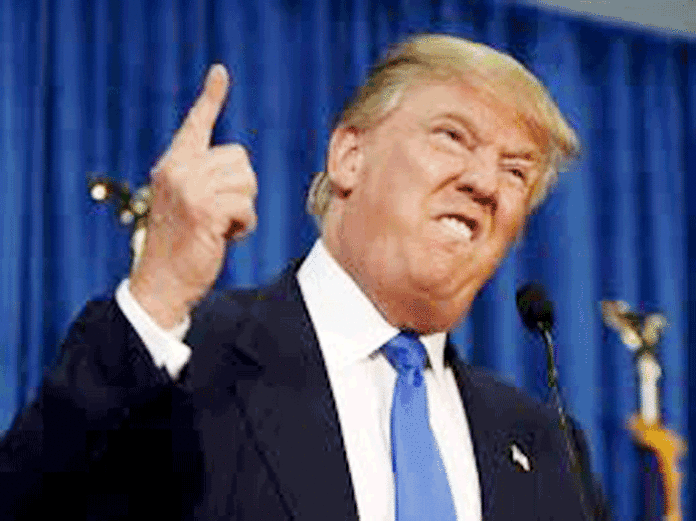Trump slams sweeping 10% tariffs on imports from all countries
President Donald Trump on Wednesday declared sweeping tariffs of 10% on imports from all countries amid warnings from around the world that retaliation would follow, fueling tensions in a global trade war.
The much-anticipated announcement fulfilled the president’s vow to hit back against countries he says have treated the U.S. unfairly.
Trump has long threatened reciprocal tariffs against countries around the world, but the president on Wednesday announced a different plan: The U.S. will charge dozens of nations half of their current tariff rate and other fees on American imports.
Among the most prominent countries hit by the tariffs are 34% to China, 20% to the EU, 46% to Vietnam, 32% to Taiwan, 26% to India and 24% to Japan.
“This is not full reciprocal,” Trump said. “This is kind reciprocal.”
Trump’s universal tariffs will go into effect April 5 at 12:01 am and his reciprocal tariffs will hit on April 9 on new imports of foreign-made goods.
Trump says tariffs will force other countries to lower their own rates on U.S. goods and services, creating a more balanced economic playing field for U.S. exports and a strong incentive for companies to manufacture goods such as cars inside the U.S. to avoid paying the tax. However, some analysts warn that the costs of tariffs will be passed along to American consumers.
Even before Wednesday’s announcement, nations pledged to fight back. Canada said it was preparing countermeasures and China, Japan and South Korea were working on a unified retaliation. The EU said it would “calibrate our response.”
The announcement came the same day Trump faced a possible rebuke from the Senate: Enough Republicans were expected to join Democrats on Wednesday in voting to end the emergency declaration enabling tariffs against Canada.
Trump, in a Truth Social post early Wednesday, accused Republican Sens. Mitch McConnell and Rand Paul of Kentucky, Susan Collins of Maine and Lisa Murkowski of Alaska of “weakness” and of “suffering from Trump Derangement Syndrome, commonly known as TDS.”
The vote’s outcome won’t stop Trump from imposing the tax on Canadian goods because the resolution likely won’t pass in the House, and even if it did, would have to be signed by Trump to go into effect.
The tariffs are the latest in a series of levies Trump has announced since taking office in January. They include 25% tariffs on imported steel and aluminum, on imported automobile and automobile parts and on goods from Mexico and Canada. All those levies have fueled vehement objections from the targeted countries and industries.
Low-income households would feel tariff pain the most
Some economists predict Americans will feel the pain from Trump’s tariffs, at least in the short term, and low-income Americans most of all.
If the administration rolls out tariffs as high as 20% on a broad range of goods and trading partners retaliate, the lowest-earning households with an average disposable income of about $43,000 would see that figure drop by as much as 5.5% − $2,365 − compared to 1.9% for the highest-earning households with disposable income above $500,000, according to a new analysis from Yale Budget Lab.
“A tariff is what we call a regressive tax because it pinches families at the bottom more than it does families at the top,” Ernie Tedeschi, director of economics at the Yale Budget Lab, told USA TODAY.
















